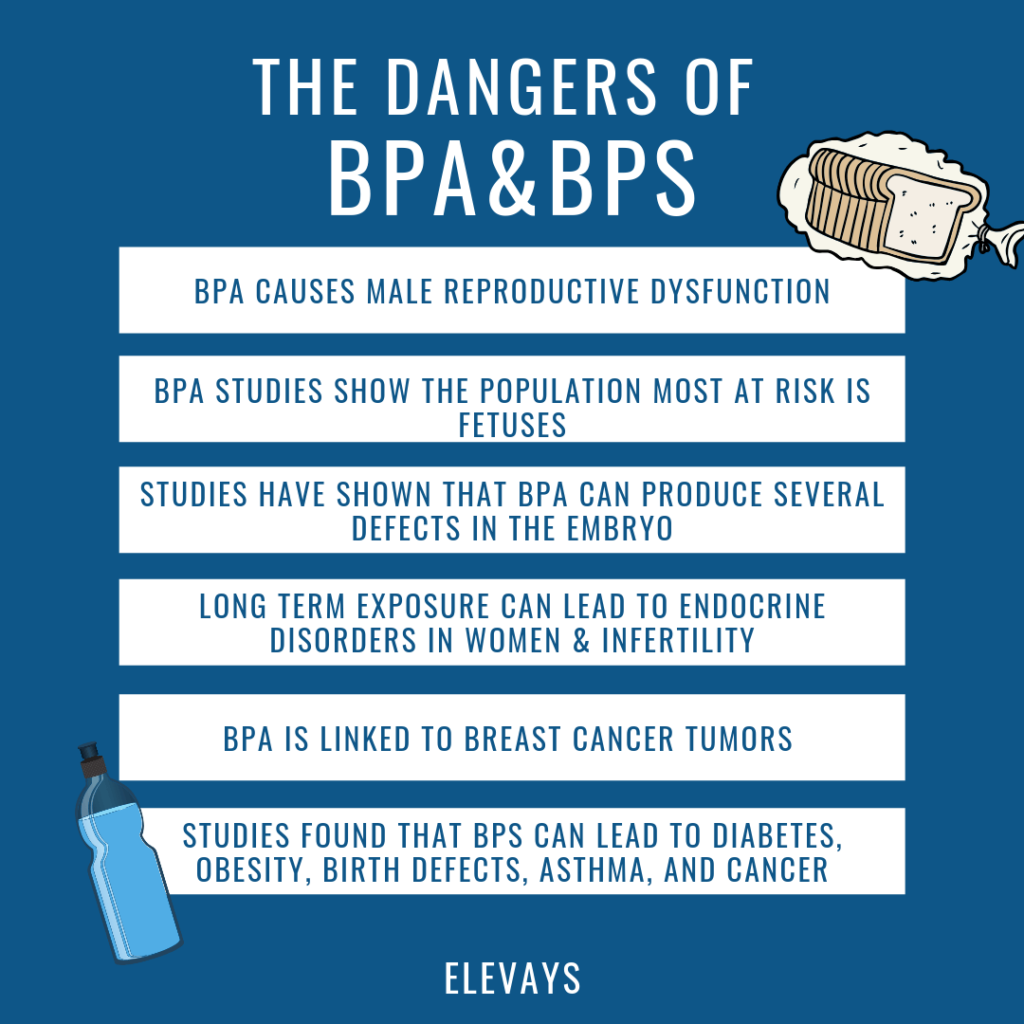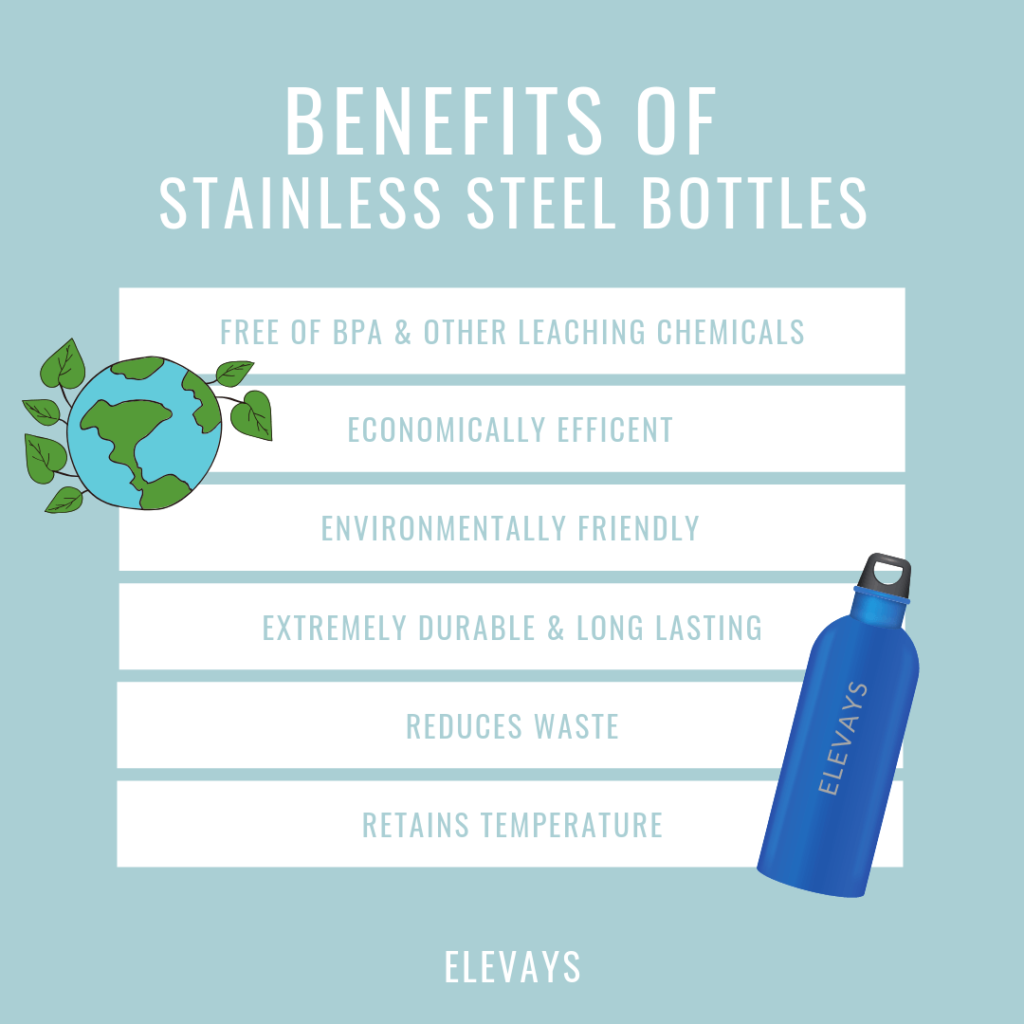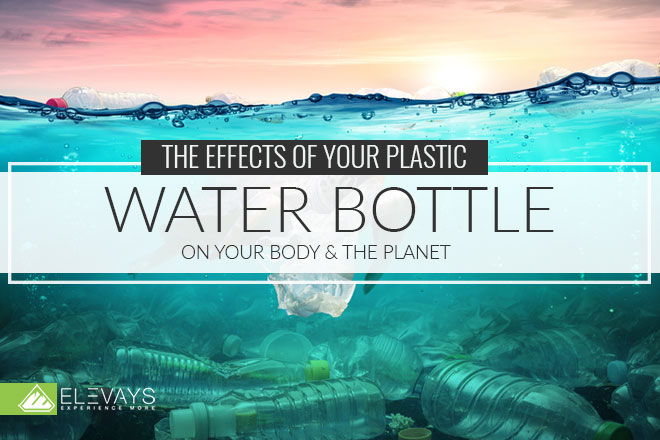When you were younger, did your parents ever tell you to not take shortcuts? That the easiest way was not always the best way? A lot of things our parents tell us held way more truth than the direct intention.
Convenience is something that haunts the United States. We zap our meals with microwaves, pick up packaged snacks, and grab water bottles instead of filling up a reusable one. 1500 plastic water bottles are being used every second in the U.S. alone, making the U.S. the largest bottled water market in the world.
You probably know the impact that plastic water bottles have on the environment, I mean most of us do, but most of us continue to choose to ignore it because we don’t physically see the effects. We are beginning to feel the effects though. Plastic water bottles are overflowing landfills and covering the ocean. Not only that but every year, the production of plastic water bottles requires approximately 17 million barrels of oil– the same amount of oil that can fuel one million cars for an entire year! The process of plastic water bottle production requires polyethylene terephthalate (PET), a petroleum product.
In addition, the manufacturing of a water bottle requires 3x the water needed to fill it! Because of the water’s exposure to chemicals during the production process- it becomes undrinkable. But that doesn’t mean the water inside the bottle is in the clear and healthy for you.
The impact of plastic bottled water goes far beyond its huge impact on the environment- plastic affects our health. New research found that PET (labeled with a #1 recycle code on the bottom of the bottle) can leach antimony trioxide, considered to be a carcinogen, a catalyst and flame retardant. This carcinogen may also lead to respiratory problems, skin irritation, and miscarriage. Phthalate endocrine disruptors also leach from PET, and with time and heat- harmful chemical levels can increase more than 70%.
In 2013, German researchers identified 25,000 different chemicals in bottled water. One of those being BPA. You’ve probably heard about bisphenol A (BPA)- and while most brands are nixing BPA and swapping it out for chemicals just as bad, others are not. BPA has been linked to diabetes, obesity, cancer, high blood pressure and more. As an endocrine disruptor (like many of the other chemicals used in the production of plastic water bottles) it mimics the effects of estrogen leading to hormone imbalance, cancer, reproductive and developmental problems and more.

But it’s not just convenient plastic water bottles that come in 24 packs- its reusable plastic water bottles as well. While the use of BPA has been banned in baby’s bottles and sippy cups, companies moved towards the use of fluroene-9-bisphenol (BHBP) and Bisphenol- S (BPS) in children’s bottles- which is no better and has been linked to adverse effects in children.
Stainless Steel Benefits

The bottom line here: ditch plastic water bottles- all kinds and make the move toward stainless steel.
- Free of BPA and other leaching chemicals
- Economically efficient
- Environmentally friendly
- Extremely durable and long lasting
- Reduces waste
- Retains temperature
- Easy to clean
When buying a stainless steel bottle, make sure it doesn’t contain any aluminum! Make sure it is made with 18/8 food grade stainless steel so you know what you are getting is the best for your body. This easy step is a huge act of gratitude for the environment and your body.
Sources:
- https://www.elementalbottles.com/blogs/news/steel-water-bottle-vs-plastic-water-bottle-whats-the-benefit-of-steel-water-bottles
- http://www.gogreen.org/blog/impacts-of-plastic-water-bottles
- https://www.mindbodygreen.com/0-11193/7-reasons-to-never-drink-bottled-water-again.html
- https://www.azocleantech.com/article.aspx?ArticleID=790





READ the Latest
Health Habits
Longevity
Health Habits
Health Habits